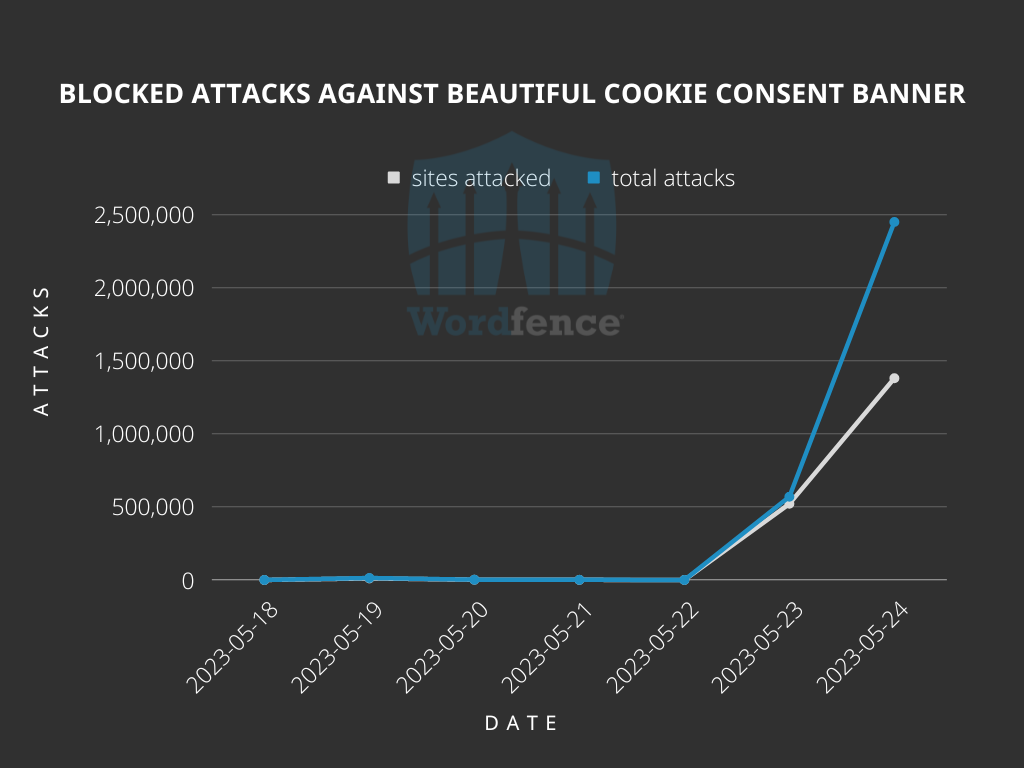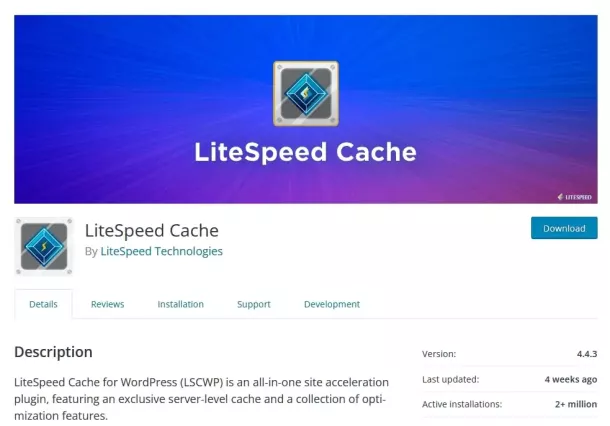
There has been an increase in attacks targeting a Cross-Site Scripting vulnerability in Beautiful Cookie Consent Banner, a WordPress plugin installed on over 40,000 sites. The vulnerability, which was fully patched in January in version 2.10.2, offers unauthenticated attackers the ability to add malicious JavaScript to a website, potentially allowing redirects to malvertizing sites as well as the creation of malicious admin users, both of which are appealing use cases for attackers.
Description: Beautiful Cookie Consent Banner <= 2.10.1 – Unauthenticated Stored Cross-Site Scripting
Affected Plugin:Beautiful Cookie Consent Banner
Plugin Slug: beautiful-and-responsive-cookie-consent
Affected Versions: <= 2.10.1
CVE ID: Not Assigned
CVSS Score: 7.2 (High)
CVSS Vector: CVSS:3.1/AV:N/AC:L/PR:N/UI:N/S:C/C:L/I:L/A:N
Researcher/s: Unknown
Fully Patched Version: 2.10.2
The Beautiful Cookie Consent Banner for WordPress is vulnerable to Stored Cross-Site Scripting via the ‘nsc_bar_content_href’ parameter in versions up to, and including, 2.10.1 due to insufficient input sanitization and output escaping. This makes it possible for unauthenticated attackers to inject arbitrary web scripts in pages that will execute whenever a user accesses an injected page. A partial patch was made available in 2.10.1 and the issue was fully patched in 2.10.2.
The Attacks
According to our records, the vulnerability has been actively attacked since February 5, 2023, but this is the largest attack against it that we have seen. We have blocked nearly 3 million attacks against more than 1.5 million sites, from nearly 14,000 IP addresses since May 23, 2023, and attacks are ongoing.

We believe that this is the work of a single actor, as every single attack contained a partial payload of onmouseenter=” and no further functioning JavaScript. It is likely that this set of attacks is being performed using a misconfigured exploit that expects a customized payload, and that the attacker has simply failed to provide one.
Despite this fact, if your website is running a vulnerable version of the plugin and you are not currently using Wordfence or another Web Application Firewall, these attacks do have the potential to corrupt the configuration of the plugin which can break its intended functionality, so we still recommend updating to the latest version, which is 2.13.0 at the time of this writing, as soon as possible.
Indicators of Compromise
Requests

POST requests to /wp-admin/admin-post.php from unrecognized IP addresses may appear in your server logs, or in your Live Traffic if you have the Wordfence plugin installed.
IP Addresses
We have included the top 20 attacking IP addresses, though there are many more:
- 209.126.12.142
- 101.34.223.139
- 92.204.37.157
- 66.37.4.138
- 92.205.48.232
- 212.237.233.32
- 195.201.82.166
- 67.205.58.212
- 51.38.27.102
- 173.236.213.148
- 207.244.241.230
- 74.208.177.185
- 92.204.33.117
- 134.119.0.186
- 5.9.238.21
- 92.205.64.149
- 94.158.149.174
- 173.236.215.161
- 92.205.48.177
- 190.54.62.76
If your site was impacted by this or an earlier attack campaign, it may have corrupted the nsc_bar_bannersettings_json option in your database. The plugin’s developers have included functionality in patched versions to repair any changes made as a result of this exploit.







